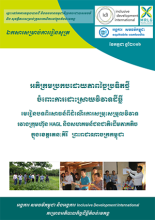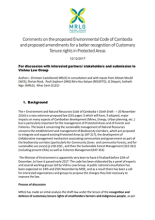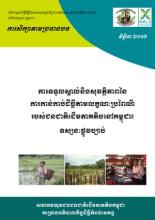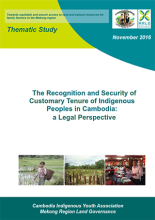Land Library
Bienvenido a la biblioteca de Land Portal. Explora nuestra amplia colección de recursos de acceso abierto (más de 74.000), que incluye informes, artículos de revistas científicas, trabajos de investigación, publicaciones revisadas por pares, documentos jurídicos, vídeos y mucho más.
/ library resources
Showing items 1 through 9 of 10.This guide is directed at governments and companies seeking information on implementing FPIC principles in investment operations to safeguard the land rights of project-affected communities.
This primer provides guidance for companies who seek to ensure that risks for project-affected communities are minimised, especially for women, who can be more vulnerable than men when it comes to land tenure.
This Primer provides practical guidance for companies on how to design, implement, manage, and monitor a company-based grievance mechanism. It is divided into the three main sections and associated steps:
• how to design and implement a company-based grievance mechanism,
This primer includes an overview of valuation and compensation best practices that illustrates the relationship between valuation and compensation and other steps and elements of responsible investment.
In the Mekong region, conflicts between local communities and large scale land concessions are widespread. They are often difficult to solve.
The NGO Forum on Cambodia, in cooperation with the Ministry of Agriculture, Forests and Fisheries, organized a national consultation workshop on 19-20 December 2016 on the sixth version of the draft Cambodian Agricultural Land Law.
The « Environment and Natural Resources Code of Cambodia » (Sixth Draft – – 20 November 2016) is a very extensive proposed law (535 pages !) which will have, if adopted, major impacts on many aspects of Cambodian development (Mines, Energy, Urban planning, etc..) but is particularly important for
This short thematic study challenges the assumption that the legal framework to recognize and protect indigenous peoples’ (IP) customary lands is adequate and that the challenge lies in its implementation.
This short thematic study challenges the assumption that the legal framework to recognize and protect indigenous peoples’ (IP) customary lands is adequate and that the challenge lies in its implementation.








